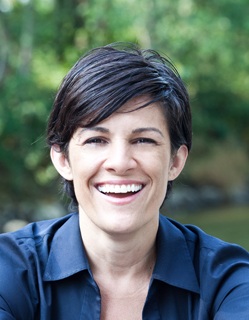On November 18, Washington State will open a thirty-day window for would-be cannabis producers, processors, and retailers to submit applications for licenses that would allow them to begin shaping a new, legal market – under state law – for a substance that remains prohibited under U.S. federal law and throughout most of the rest of the world. Washington voters passed Initiative Measure No. 502 (I-502) on November 6, 2012, with a 56% majority, thereby legalizing, taxing, and regulating cannabis for adults 21 years of age and older. The measure passed in twenty of Washington’s thirty-nine counties, in conservative Eastern Washington as well as the liberal West, and in rural areas as well as urban.
And yet, less than a third of Washington’s electorate expressed positive feelings about cannabis before taking this historic vote. Many expressed concerns about increased use, especially among youth, and increased impairment on roadways and in workplaces. Cannabis prohibition in the U.S., and the use of the criminal sanction to enforce this prohibition, was premised on the idea that making the production, distribution, and use of the substance illegal would promote public health and public safety. How could the state’s voters reject this policy, and seemingly embrace cannabis use, by a double-digit margin?
The answer is that while voters do not necessarily like cannabis, they like the results of cannabis prohibition even less. Much as the U.S. experiment with alcohol Prohibition ended not because people changed their minds about gin but because they changed their minds about the policy approach, I-502 passed because Washington voters believed marijuana prohibition had failed and it was time for a new approach.
I-502 is not a “free the weed” proposal. Several policy features were included to maximize the chances that I-502 would deliver better outcomes than prohibition has. A new excise tax will be dedicated to prevention, education, treatment, research, monitoring, and evaluation. The tax level will be reviewed regularly and adjusted to promote the goal of undercutting the black market while discouraging use among price-sensitive youth. Cost-benefit evaluations, to be conducted by the Washington State Institute for Public Policy in 2015, 2017, 2022, and 2032, will consider factors impacting public health, public safety, the economy, the criminal justice system, and state and local administrative budgets.
The number and location of cannabis stores will be limited, and banned within 1,000 feet of places frequented by youth. Advertising will be restricted to minimize exposure to minors, and cannabis will be packaged in opaque, childproof containers bearing labels that provide information regarding THC concentration and cannabinoid profile. Information regarding chemicals used on the plants during cultivation and harvest must be made available to consumers on demand.
It’s too soon to know how cannabis use will change once stores have opened. The goal is to promote public health and safety without criminalizing consumers and enriching a black market. Undoubtedly, rough patches lie ahead, and adjustments will be necessary. But the outlook is promising.
*Please note that the material presented here does not necessarily imply endorsement or agreement by individuals at the Centre for Addictions Research of BC
Alison Holcomb, Criminal Justice Director at American Civil Liberties Union of Washington State and primary author of I-502


